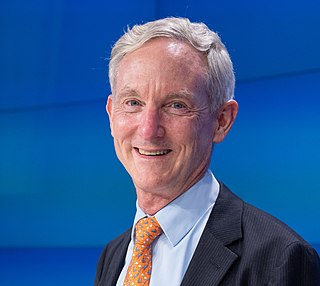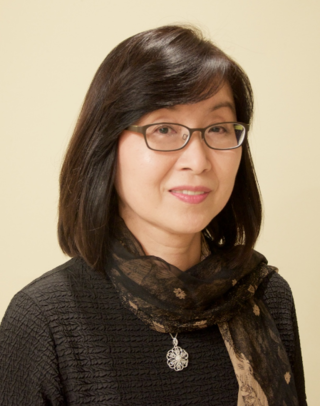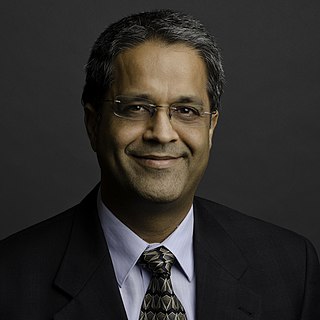Related Research Articles

Jack Joseph Dongarra is an American computer scientist and mathematician. He is the American University Distinguished Professor of Computer Science in the Electrical Engineering and Computer Science Department at the University of Tennessee. He holds the position of a Distinguished Research Staff member in the Computer Science and Mathematics Division at Oak Ridge National Laboratory, Turing Fellowship in the School of Mathematics at the University of Manchester, and is an adjunct professor and teacher in the Computer Science Department at Rice University. He served as a faculty fellow at the Texas A&M University Institute for Advanced Study (2014–2018). Dongarra is the founding director of the Innovative Computing Laboratory at the University of Tennessee. He was the recipient of the Turing Award in 2021.

Frank Thomson "Tom" Leighton is the CEO of Akamai Technologies, the company he co-founded with the late Daniel Lewin in 1998. As one of the world's preeminent authorities on algorithms for network applications and cybersecurity, Dr. Leighton discovered a solution to free up web congestion using applied mathematics and distributed computing.
Society for Industrial and Applied Mathematics (SIAM) is a professional society dedicated to applied mathematics, computational science, and data science through research, publications, and community. SIAM is the world's largest scientific society devoted to applied mathematics, and roughly two-thirds of its membership resides within the United States. Founded in 1951, the organization began holding annual national meetings in 1954, and now hosts conferences, publishes books and scholarly journals, and engages in advocacy in issues of interest to its membership. Members include engineers, scientists, and mathematicians, both those employed in academia and those working in industry. The society supports educational institutions promoting applied mathematics.
Trilinos is a collection of open-source software libraries, called packages, intended to be used as building blocks for the development of scientific applications. The word "Trilinos" is Greek and conveys the idea of "a string of pearls", suggesting a number of software packages linked together by a common infrastructure. Trilinos was developed at Sandia National Laboratories from a core group of existing algorithms and utilizes the functionality of software interfaces such as BLAS, LAPACK, and MPI. In 2004, Trilinos received an R&D100 Award.
In multilinear algebra, a tensor decomposition is any scheme for expressing a "data tensor" as a sequence of elementary operations acting on other, often simpler tensors. Many tensor decompositions generalize some matrix decompositions.

Cynthia Dwork is an American computer scientist best known for her contributions to cryptography, distributed computing, and algorithmic fairness. She is one of the inventors of differential privacy and proof-of-work.

Multilinear subspace learning is an approach for disentangling the causal factor of data formation and performing dimensionality reduction. The Dimensionality reduction can be performed on a data tensor that contains a collection of observations have been vectorized, or observations that are treated as matrices and concatenated into a data tensor. Here are some examples of data tensors whose observations are vectorized or whose observations are matrices concatenated into data tensor images (2D/3D), video sequences (3D/4D), and hyperspectral cubes (3D/4D).
Multilinear principal component analysis (MPCA) is a multilinear extension of principal component analysis (PCA) that is used to analyze M-way arrays, also informally referred to as "data tensors". M-way arrays may be modeled by linear tensor models, such as CANDECOMP/Parafac, or by multilinear tensor models, such as multilinear principal component analysis (MPCA) or multilinear independent component analysis (MICA). The origin of MPCA can be traced back to the tensor rank decomposition introduced by Frank Lauren Hitchcock in 1927; to the Tucker decomposition; and to Peter Kroonenberg's "3-mode PCA" work. In 2000, De Lathauwer et al. restated Tucker and Kroonenberg's work in clear and concise numerical computational terms in their SIAM paper entitled "Multilinear Singular Value Decomposition", (HOSVD) and in their paper "On the Best Rank-1 and Rank-(R1, R2, ..., RN ) Approximation of Higher-order Tensors".

James Weldon Demmel Jr. is an American mathematician and computer scientist, the Dr. Richard Carl Dehmel Distinguished Professor of Mathematics and Computer Science at the University of California, Berkeley.
Ronitt Rubinfeld is a professor of electrical engineering and computer science at the Massachusetts Institute of Technology (MIT) and at the School of Computer Science at Tel Aviv University.

Alan Stuart Edelman is an American mathematician and computer scientist. He is a professor of applied mathematics at the Massachusetts Institute of Technology (MIT) and a Principal Investigator at the MIT Computer Science and Artificial Intelligence Laboratory (CSAIL) where he leads a group in applied computing. In 2004, he founded a business called Interactive Supercomputing which was later acquired by Microsoft. Edelman is a fellow of American Mathematical Society (AMS), Society for Industrial and Applied Mathematics (SIAM), Institute of Electrical and Electronics Engineers (IEEE), and Association for Computing Machinery (ACM), for his contributions in numerical linear algebra, computational science, parallel computing, and random matrix theory. He is one of the creators of the technical programming language Julia.

Katherine "Kathy" Anne Yelick, an American computer scientist, is the vice chancellor for research and the Robert S. Pepper Professor of Electrical Engineering and Computer Sciences at the University of California, Berkeley. She is also a faculty scientist at Lawrence Berkeley National Laboratory, where she was Associate Laboratory Director for Computing Sciences from 2010–2019.
Nancy Marie Amato is an American computer scientist noted for her research on the algorithmic foundations of motion planning, computational biology, computational geometry and parallel computing. Amato is the Abel Bliss Professor of Engineering and Head of the Department of Computer Science at the University of Illinois at Urbana-Champaign. Amato is noted for her leadership in broadening participation in computing, and is currently a member of the steering committee of CRA-WP, of which she has been a member of the board since 2000.

Haesun Park is a professor and chair of Computational Science and Engineering at the Georgia Institute of Technology. She is an IEEE Fellow, ACM Fellow, and Society for Industrial and Applied Mathematics Fellow. Park's main areas of research are Numerical Algorithms, Data Analysis, Visual Analytics and Parallel Computing. She has co-authored over 100 articles in peer-reviewed journals and conferences.
Dianne Prost O'Leary is an American mathematician and computer scientist whose research concerns scientific computing, computational linear algebra, and the history of scientific computing. She is Distinguished University Professor Emerita of Computer Science at the University of Maryland, College Park, and is the author of the book Scientific Computing with Case Studies.

Inderjit S. Dhillon is the Gottesman Family Centennial Professor of Computer Science and Mathematics at the University of Texas at Austin, where he is also the Director of the ICES Center for Big Data Analytics. His main research interests are in machine learning, data analysis, parallel computing, network analysis, linear algebra and optimization.
Cynthia A. Phillips is a researcher at the Center for Computing Research of Sandia National Laboratories, known for her work in combinatorial optimization.
Laura Grigori is a French-Romanian applied mathematician and computer scientist known for her research on numerical linear algebra and communication-avoiding algorithms. She is a director of research for the French Institute for Research in Computer Science and Automation (INRIA) in Paris, and heads the "Alpines" scientific computing project jointly affiliated with INRIA and the Laboratoire Jacques-Louis Lions of Sorbonne University.
Daniel Kressner is a German numerical analyst. He has a Chair of Numerical Algorithms and High Performance Computing in the Institute of Mathematics at EPF Lausanne.
Tensor informally refers in machine learning to two different concepts that organize and represent data. Data may be organized in a multidimensional array (M-way array) that is informally referred to as a "data tensor"; however in the strict mathematical sense, a tensor is a multilinear mapping over a set of domain vector spaces to a range vector space. Observations, such as images, movies, volumes, sounds, and relationships among words and concepts, stored in an M-way array ("data tensor") may be analyzed either by artificial neural networks or tensor methods.
References
- 1 2 "Tamara G Kolda". awards.acm.org.
- 1 2 Camacho-Lopez, Tara (23 June 2015). "Sandian Named Fellow of the Society for Industrial and Applied Mathematics". Sandia Energy.
- ↑ "SC16 Invited Talk Spotlight: Dr. Tamara G. Kolda Presents "Parallel Multiway Methods for Compression of Massive Data and Other Applications"". SuperComputing16. 29 September 2016. Retrieved 15 October 2017.
- ↑ "Q&A: Tamara Kolda on SIAM Journal Macro Update". SIAM News. 21 March 2016.
- ↑ "Tamara G. Kolda - CV" (PDF).
- ↑ "Tamara G Kolda". awards.acm.org.
- ↑ "SIAM Fellows Class of 2015". fellows.siam.org.
- ↑ "National Academy of Engineering Elects 86 Members and 18 International Members". National Academy of Engineering. February 6, 2020. Retrieved 2020-10-08.